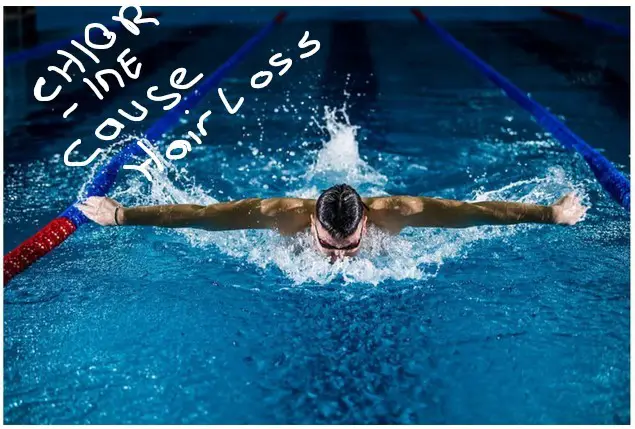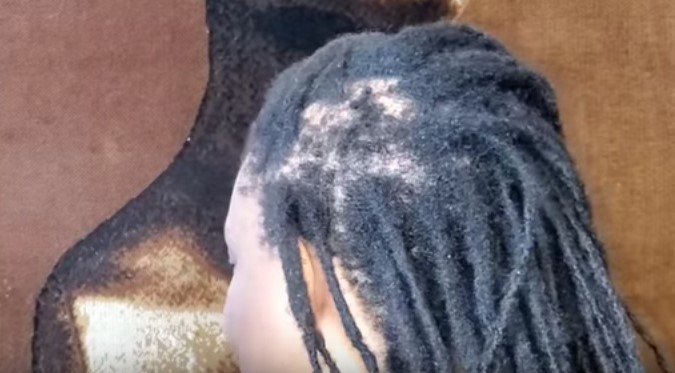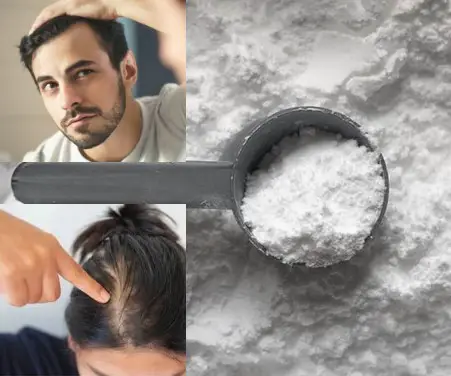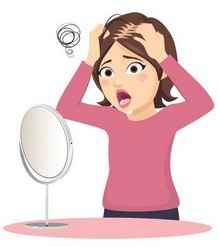When summer is here, why is this topic: “can chlorine cause hair loss” is so commonly asked, and is their a facts or fiction to this question. All your question to will be answered below, so continue reading.
Chlorine can stop your hair from growing and can cause hair loss, when most of us are concern about heading to the pool for a swim to cool down it’s best to over your head of hair or keep if above water.
It’s crucial to note, however, that swimming in chlorinated water for an extended period of time can be harmful to your skin and hair.
Dr. Anthony Farole, a hair restoration expert with hundreds of patients in the Philadelphia region, responds to queries concerning chlorine exposure and hair health.
Chlorine causes hair loss and damage your health
Chlorine can cause your hair to fall out, it is a harsh chemical that so many health professionals believe is harmful to human health, particularly the skin and eyes, despite its widespread use in public and private swimming pools.
After extended contact to chlorine, it has an oxidizing impact that can cause dryness and irritation.
Chlorine exposure can sometimes result in the development of hypochlorite acid, a chemical that can infiltrate cells and damage them from inside.
Low chlorine concentrations, on the other hand, are extremely successful in keeping swimming pools clean and safe. Chlorine in pool water, despite its modest quantity, has the ability to cause major damage to hair, skin, and eyes.
Take a look at these commonly asked questions about chlorine, hair damage and loss, and your health to stay healthy this summer.
Can chlorine cause hair loss?
Chlorine will not cause you to lose your hair if you are not exposed to it on a regular basis. After research was published in the Journal of Dermatology, this myth was refuted. The hair of 67 elite swimmers was compared to the hair of 54 people who spent little to no time in the water in the study. Despite the fact that swimmers’ hair showed symptoms of chlorine damage such as dryness and coarseness, they were not substantially more likely to lose hair.
However, data shows that not only can chlorine cause hair loss but excessive amount of chlorine when the hair is exposure can cause the scalp to become itchy, dry, and flaking. Hair thinning or shedding may occur, but it’s important to note that the amount of chlorine required to cause such negative effects is significantly more than that found in a typical swimming pool.
Can chlorine in water cause hair colour to change?
The colour of one’s hair is unaffected by chlorine. Although swimming in the pool can cause hair to turn green, the discolouration is caused by oxidized metals in the water, such as copper.
Colour treatments that expose hair to chlorine, on the other hand, may make it easier for hair to become green.
As previously stated, one of the most common negative effects of chlorine contact is dryness and irritation. Hair can become exceedingly dry, porous, and brittle when combined with hair treatments and colours. Hair that has become porous is more likely to absorb copper and other substances that cause discolouration.
Can I reduce the chlorine hair loss damage to my hair?
Yes, Many people are astonished to learn that merely washing hair with fresh water before entering the pool may dramatically prevent chlorine damage. Hair strands have the incredible capacity to absorb moisture like a sponge. By properly washing hair with fresh water before entering the pool, you establish a barrier that prevents hair from absorbing chlorinated water while swimming.
|
Chlorine vs Clearwater Purification System
|
||
|
Chlorine |
Purifier |
|
|
Harmful to eyes |
Yes |
No |
|
Dry, itchy, irritated skin |
Yes |
No |
|
Dry, brittle, beached hair |
Yes |
No |
|
Fades swim suits |
Yes |
No |
|
Unpleasant to smell |
Yes |
No |
|
Evaporate |
Yes |
No |
|
Explosive, unsafe to handle |
Yes |
No |
|
Dangerous to store |
Yes |
No |
|
Toxic to landscaping |
Yes |
No |
|
Linked to cancer |
Yes |
No |
|
Toxic to lungs |
Yes |
No |
|
Contant hassle |
Yes |
No |
|
Requires daily maintenance |
Yes |
No |
|
Absorbs through skin |
Yes |
No |
|
Leaks hazardous benzine from pipes |
Yes |
No |
|
Forms carcinogenic thrihalomethane |
Yes |
No |
|
Create chloramines |
Yes |
No |
|
Requires use of cyanuric acid |
Yes |
No |
Swimming hair loss in chlorine – is it reversible?
Chlorine affects hair in the most frequent method by making it dry and porous, which can lead to discolouration. After each swim session, be sure to completely wash and rinse your hair to prevent any damage. Use a lot of shampoo to get rid of any chemical residue, and conclude your post-swim wash with a protein-rich conditioner to restore the hair’s natural hydration. Special shampoos and conditioners are available for persons with color-treated hair to help prevent discolouration.
What’s Next
You can learn about other causes of hair loss.
- AI Powered Bald Filter Online 2024: See Yourself with No Hair! - January 19, 2024
- Harklinikken Bad Reviews 2024: Analyzing Negative Feedbacks - January 18, 2024
- How to Get the Alex Eubank Hair | Step-By-Step Tutorial 2024 - January 18, 2024







